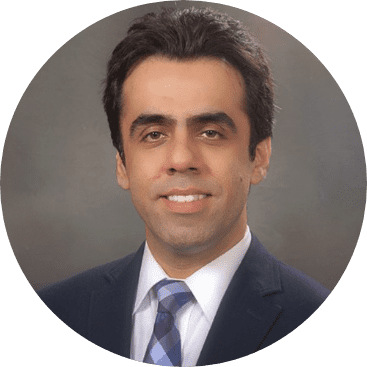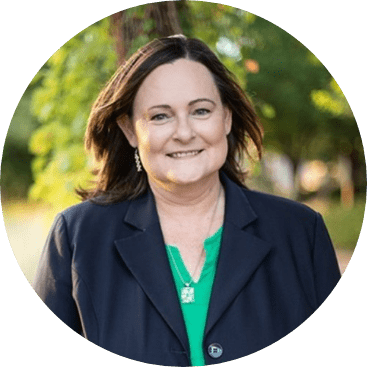Distinguished Partners
Program
The Institute for a Disaster Resilient Texas (IDRT) exists to deliver critical research on disaster risk reduction, support state agencies with data analytics and decision-making tools, and generate evidence-based solutions that help Texas communities become more resilient. The best and only way to achieve this lofty mission is to work closely together with the many excellent and committed researchers across the state, region, country, and beyond who also embrace these goals.
Of the various collaboration mechanisms, we have launched the Distinguished Partners Program. We will identify and invite several researchers every other year to participate in a two-year cohort that has two primary aims:
- Form and strengthen research relationships with and among key people.
- Plant seeds for future collaborative funding proposals.
Our 2023-2025
Distinguished Partners

Jens Figlus
Associate Professor of Ocean Engineering
Dr. Jens Figlus is a civil/coastal engineer and Associate Professor in the Department of Ocean Engineering at Texas A&M University. Dr. Figlus heads the Coastal Engineering Laboratory (CEL) on A&M’s Galveston Campus and is a faculty fellow with the Center for Texas Beaches and Shores (CTBS) and the Institute for a Disaster Resilient Texas (IDRT). Dr. Figlus graduated with a 5-year engineering degree (Dipl.-Ing.) from Karlsruhe Institute of Technology (KIT) in Germany with an emphasis on environmental fluid mechanics. He received his Masters and Ph.D. degrees in civil engineering with an emphasis on coastal engineering from the University of Delaware. Since joining Texas A&M University in 2012, Dr. Figlus has been conducting engineering research and teaching undergraduate and graduate students about coastal engineering and related subjects. He teaches classes related to coastal engineering, fluid dynamics, geotechnical engineering, and ocean measurements and is a faculty mentor for undergraduate research scholars.
Dr. Figlus’ research focuses on improving our understanding of coastal system processes and engineering approaches to reduce the risk of coastal flooding and erosion. He is an expert in field measurement techniques, laboratory experiments, and numerical model analysis related to storm impacts on barrier islands and dunes, coastal hydrodynamics, sediment transport, and morphodynamics. Together with his team he runs the CEL movable-bed wave flume research facility and deploys field instrumentation to capture wave, current, and sediment processes in nearshore and bay systems.

Bas Jonkman
Professor of Hydraulic Engineering
S.N. (Bas) Jonkman is a professor of Hydraulic Engineering at Delft University, the Netherlands. Since the year 2012, he holds the chair of Integral Hydraulic Engineering, which focuses on research and education in the fields of hydraulic structures and flood risk. He holds a PhD degree from TU Delft and has worked for the Dutch government (Rijkswaterstaat), Royal HaskoningDHV and UC Berkeley. Currently, he is also a visiting professor at Texas A&M Galveston and a recipient of the 2022 – 2023 Hagler Fellowship. His research interests include flood risk management, disaster management, and the integral design of hydraulic infrastructure, such as flood defences and storm surge barriers. He has been involved in post-disaster and design studies in New Orleans, Houston, Mozambique and various countries in South East Asia. He was the scientific coordinator for a national fact finding study after the 2021 summer floods that catastrophically affected the South of the Netherlands. He has been leading research and design efforts of TU Delft for a coastal spine protection system for the Houston Galveston Bay area in Texas. Dr. Jonkman is currently leading a number of national and European research projects focusing on climate adaptation and strategies for flood risk reduction, including storm surge barriers and nature-based solutions.

Ali Mostafavi
Associate Professor of Civil and Environmental Engineering
Dr. Ali Mostafavi is Zachry Endowed Associate Professor at the Zachry Department of Civil and Environmental Engineering at Texas A&M University. He is the director of UrbanResilience.AI Lab whose research focuses on creating advanced computational models and data science algorithms to advance urban resilience to crises. His research program has led to new ways of developing computational tools and improving the understanding of resilience in complex urban systems. His research program has received more than $7 million in funding support from various sponsors such as NSF, National Academies, AWS, Microsoft Azure, Department of Transportation, and CII. He is the author of 93 journal articles and 75 conference proceedings. He has received several prestigious awards such as the NSF CAREER Award, Early-Career Fellowship of the National Academies’ Gulf Research Program, AWS Machine Learning Award, College of Engineering Faculty Excellence Award, ASCE Daniel Halpin Award, CII Outstanding Professor Award, and Best Paper Awards in ASCE Computing in Civil Engineering and Construction Research Congress. He is a member of the ASCE Infrastructure Resilience Division, Resilience Fellow of 4TU Resilience Engineering Center at TU Delft, and the Editorial Board Member of Nature Scientific Reports, ASCE Management in Engineering and Infrastructure Systems Journals.

Galen D. Newman
Professor of Landscape Architecture and Urban Planning
Dr. Galen D. Newman is Professor and Head of the Department of Landscape Architecture and Urban Planning (LAUP) at Texas A&M University as well as the Youngblood Endowed Professor of Residential Land Development. He is also PI of the TAMU Superfund Center’s Community Engagement Core and Co-I for is Risk and Geospatial Sciences Core. In LAUP, he has formerly served as Associate Department Head, Coordinator of the Bachelor of Landscape Architecture Program, Director of the Center for Housing and Urban Development, Coordinator of the Bachelor of Science in Urban Planning Program, Associate Director of the Hazard Reduction and Recovery Center, and Community Resilience Lead for the institute for Sustainable Communities. Dr. Newman’s has over 100 published journal articles and his research interests include community resilience, urban regeneration, land use science, spatial analytics, and built environment performance. His work has been published in many high-quality peer-reviewed outlets and has been funded through numerous internal and external funding sources including the National Science Foundation and the National Institute of Environmental Health Sciences.

Jamie E. Padgett
Professor of Civil and Environmental Engineering
Dr. Jamie E. Padgett is the Stanley C. Moore Professor and Department Chair of Civil and Environmental Engineering at Rice University in Houston, TX. Padgett is a structural engineer whose research is focused on multi-hazard risk and resilience modeling of structures and infrastructure systems, while understanding their impacts on communities. Her work develops new methods to quantify and improve the performance of infrastructure exposed to natural hazards such as earthquakes, hurricanes and flooding. Padgett’s research has applications to a range of systems, including bridges, tank farms, energy and industrial facilities, and intermodal transportation systems. She has published over 250 articles in journals or archived conference proceedings in the general area of structural fragility, life-cycle assessment, and infrastructure resilience. Dr. Padgett has received several prestigious awards and recognitions including the TAMEST Edith and Peter O’Donnell Award (2023); Executive Leadership in Academic Technology, Engineering and Science (ELATES) Fellowship (2021-2022); Engineering Mechanics Institute (EMI) Objective Resilience Distinguished Lecturer (2019); the American Society of Civil Engineering (ASCE) Walter L. Huber Civil Engineering Research Prize (2017); and the National Science Foundation (NSF) Faculty Early Career Development (CAREER) Award (2011). She is a Fellow of ASCE’s Structural Engineering Institute (SEI) and the founding Chair of its technical committee on Multiple Hazard Mitigation. Among other advisory and professional service roles, Padgett serves on Editorial Boards for such journals as the ASCE Journal of Structural Engineering, Earthquake Engineering and Structural Dynamics, and Sustainable and Resilient Infrastructure. Padgett serves in leadership roles within several large national research efforts including the NIST Center of Excellence for Risk-based Resilience Planning, the NSF Natural Hazards Engineering Research Infrastructure (NHERI) Cyberinfrastructure “DesignSafe-CI”, and the Severe Storm Prediction Education and Evacuation from Disasters (SSPEED) Center. She is the Faculty Director of the inaugural Gulf Scholars Program at Rice University funded by NASEM’s Gulf Research Program, and an NSF BRITE Fellow.

Keri Stephens
Professor, Moody College of Communication
Dr. Keri Stephens is an expert in using technology to communicate during infrastructure-related crises and disasters. She has authored over 100 articles/book chapters, and her two most recent books are the national-level-award winning book New Media in Times of Crisis (2019, Routledge), and the two-time national-level award-winning book Negotiating Control: Organizations and Mobile Communication (2018, Oxford University Press). Her research has received federal (e.g., NSF), state, industry, and international agency (e.g., Japan Science & Technology Agency) support. Her team recently authored the Texas Water Development Board’s Flood Resource Guide for Community Officials in 2022, and they developed the Public Involvement Training for TxDOT in 2021. She works with IDRT on projects related to communicating flood-specific information as well as on the Digital Risk Infrastructure Program (DRIP) for under-resourced Texas Communities.
She is a Professor in Organizational Communication Technology and is Co-Director of Technology, Information, & Policy Institute in the Moody College of Communication at The University of Texas at Austin. She has a BS in biochemistry from Texas A&M University, an MA and Ph.D. from The University of Texas at Austin, is a flood survivor (1978 Flood on the Clearfork of the Brazos River in Texas) and grew up in the rural Texas community of South Bend, Texas.


